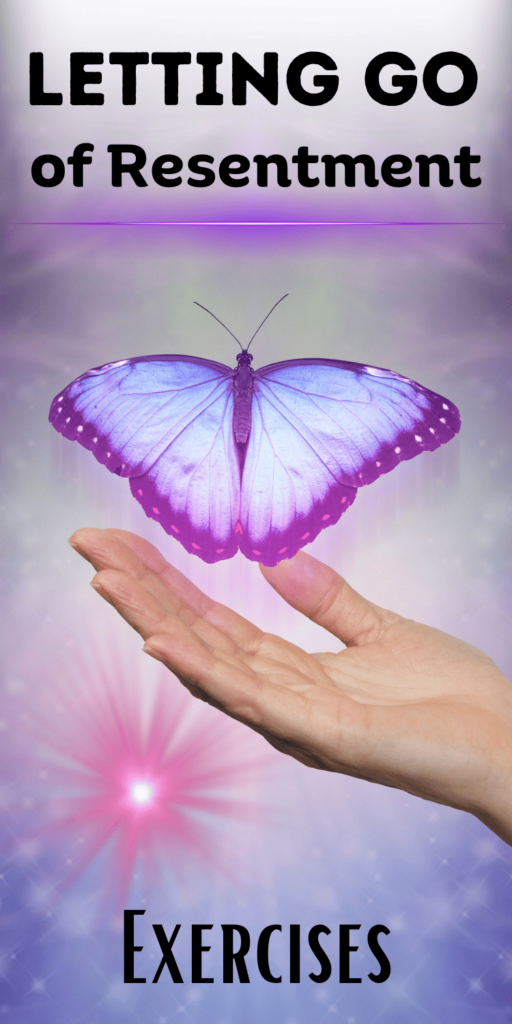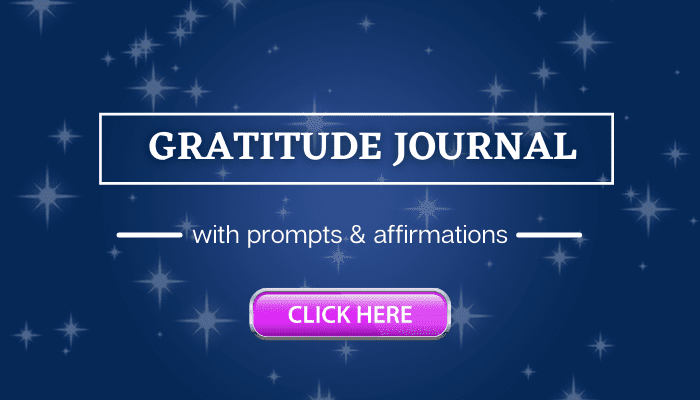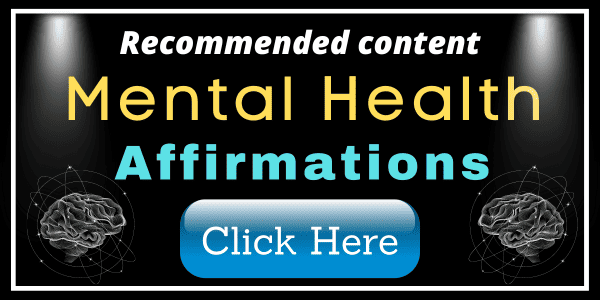| Technique | Description | Benefits |
|---|---|---|
| Acknowledge feelings | 15 min daily journaling to express resentment fully | Releases emotions rather than bottling up |
| Identify root causes | Ask key questions to reveal core wounds driving resentment | Informs most effective treatment path |
| Reframe perspectives | Examine situations objectively, practice empathy | Stimulates forgiveness by understanding contexts |
| Forgiveness practice | Self-affirmations to shift blame mindsets | Unburdens by releasing others from blame |
| Establish boundaries | Communicate relational lines not to be crossed | Prevents buildup of future resentment |
| Self-care activities | Prioritize relaxing, rewarding activities | Replenishes inner reserves depleted by resentment |
| Seek support | Friends, communities, counselors provide encouragement | Illuminates the path so you don’t heal alone |
| Gratitude journaling | Write down grateful thoughts for 5-10 min daily | Counteracts resentment’s negativity |
| Self-forgiveness meditation | Guided meditation to release misplaced self-blame | Eases inner turmoil fueled by resentment |
| EFT tapping | Tap energy points while vocalizing resentment release | Emotional relief by accessing energy pathways |
Resentment feels like carrying around a backpack full of bricks—it’s an exhausting, never-ending burden.
What if you could finally take that weight off, breathe easy, and rediscover lightness?
This article will teach you proven techniques to eradicate resentment from your life.
By learning to acknowledge your true feelings, shift perspectives, practice forgiveness, and show yourself compassion, you can actively heal emotional wounds.
With time and commitment, you’ll find relationships strengthening, optimism rising, and a state of inner peace you might have forgotten was possible.
Now let’s explore techniques as part of your healing toolkit to begin dismantling resentment’s mental traps. While the exercises build on each other in a full program, feel empowered to start anywhere resonance calls you.

1. Acknowledge and Accept Your Feelings
Suppressing resentment is like clamping a lid on a pot of boiling water – you increase the internal pressure. The key is creating a release valve for those emotions to safely escape.
Set aside 15 minutes daily to journal your truthful thoughts and feelings related to the resentment. Describe in detail the associated memories, physical sensations, inner critiques, fantasies of revenge.
Don’t hold back – pour it all out raw onto the page. Consider starting entries with prompts like “What still hurts me is…” or “What I wish would happen is…”
Resist the urge to judge what arises. The goal is simply to acknowledge the presence of these emotions and grant yourself permission to feel them.
Like lancing an infected wound to drain toxicity, this process draws poisons to the surface so you can process it.
2. Identify the Root Causes
Carefully analyzing the origins of your resentment equips you to address it effectively. To determine these roots, ponder questions like:
– What core need or expectation was unfulfilled that I’m reacting to?
– What meaning did I assign to the situation? Is it objectively true?
– What automatic judgments arose that I’m clinging to about them or myself?
– How did this situation challenge my underlying beliefs or worldview?
Identifying themes in the answers reveals the emotional wounds resentment has crystallized around.
For instance, discovering repeated betrayal and abandonment patterns underlying different resentments spotlights an area requiring healing.
Perhaps unjust accusations signal struggles with self-worth and the need for self-love practices.
Locating the roots informs what recipies to pursue for releasing this resentment once and for all.

3. Reframe Your Perspective
Resentment often rests on a subjective story we tell ourselves about the offending situation. Examining events more objectively can reveal mitigating factors or alternate interpretations to consider.
Ask yourself honest questions like:
– Were good intentions truly absent or could there have been a misunderstanding?
– Could my own words or actions have reasonably contributed to hurt feelings?
– How might the situation appear from their perspective? What additional context could exist?
Additionally, research shows activities like meditation, prayer, or loving-kindness practices increase feelings of compassion and empathy.
As your anger and hurt soften, you see the humanity in those who caused pain.
You understand how suffering breeds further suffering rather than condemning them. This naturally stimulates forgiveness.
4. Practice Forgiveness
Forgiveness does not make harmful actions suddenly okay or mean reconciling.
Rather, it acknowledges the pain created while choosing to release others from perpetual blame. Think of it as putting down a 100lb rucksack of rage that only weighs you down.
Self-affirmations help reprogram resentment’s old mental tapes playing messages like “What they did is unforgiveable.”
Replace these with empowering mantras like “I am ready and willing to heal” or “The past does not determine my future happiness.”
Repeat them aloud or write them in a place you’ll see daily.
5. Establish Boundaries
Preventing future hurt means asserting personal boundaries clearly upfront in relationships.
This ensures resentment doesn’t gradually build from simmering unstated expectations.
Ask yourself what behaviors or treatment absolutely do not align with your values. These become the lines not to be crossed.
Calmly discuss them with relevant people in non-accusatory terms. For example, “I need open and honest communication to feel safe and respected in a relationship.”
Reinforce boundaries by acting consistently with them. If crossed repeatedly, reconsider the relationship.
Boundaries boost self-worth while producing clarity for others on acceptable interactions so hurting you remains less likely.
They enable freely offering the gift of forgiveness when mishaps still occasionally happen.

6. Engage in Self-Care
Just as proper nutrition and rest support physical wound healing, self-care nurtures emotional recovery.
Make relaxing, rewarding activities that cultivate joy, meaning and calm a regular priority.
Ideas include journaling, cozy teas, browsing old photos, creating art, wandering nature, listening to uplifting podcasts etc.
Schedule this time with the same seriousness as other obligations. Buffering yourself with daily self-care replenishes inner reserves depleted by resentment so you can heal.
It also serves as preventative medicine should new hurts arise. No longer perpetually reactive, you respond with wisdom.

7. Seek External Support
Healing resentment is achievable with self-directed education and commitment to the exercises here. However, involving others significantly eases this challenging journey.
Confide in trusted friends and family who will listen, validate, and cheerlead your emotional healing without judgement. Join in-person or online communities to share experiences and gain encouragement from others seeking growth.
For some, independent efforts may not wholly shift ingrained resentment. In these cases, seeking counseling provides specialized rehabilitation.
A skilled therapist or counselor serves as an experienced guide equipped with tailored therapeutic techniques. Combined with lifestyle changes, counseling can successfully process old traumas that often form resentment’s foundation.
With empathy, advice and accountability from your expanded support network, overcoming resentment’s obstacles becomes more achievable. You don’t have to wander alone grappling outdated maps. External support illuminates the way.

Three Bonus Exercises
- Gratitude Practice
- Description: Spend 5-10 minutes daily writing down things you feel grateful for. Intentionally shift your mindset to appreciate positives.
- Benefits: Focusing on gratitude counteracts resentment’s negative undercurrents. Making thankfulness a habit rewires thought patterns.
- Self-Forgiveness Meditation
- Description: A guided meditation asking yourself for forgiveness for any roles you played in past hurts. Repeat mantras like “I forgive myself and set myself free.”
- Benefits: We often judge ourselves harshly carrying misplaced blame. Self-forgiveness eases inner turmoil resentment fuels within us. It empowers moving forward.
The gratitude journaling helps proactively flood the mind with positive emotions versus dwelling in negativity. Meanwhile, the self-forgiveness meditation offsets self-judgment traps resentment can exacerbate.

- EFT Tapping
- Description: Use fingertips to tap on energy meridian points while verbalizing and focusing on resentment feelings and statements like “Even though I resent them for what they did, I choose to release this anger.”
A few more statements:
- “Even though I still feel so much anger toward them, I am willing to let this go and feel peace.”
- “I release the hold this resentment has on me and choose my own happiness and freedom.”
- “I acknowledge the hurt while sending understanding and compassion to us both.”
- “This grudge is only causing me more suffering. I set us both free.”
- “I honor the divine light in both of us that transcends this conflict.”
- “I step out of seeing myself only as a victim and into my empowered wisdom.”
- “I surrender the urge to punish and blame while opening to learn from this.”
- “I take responsibility for my part and sincerely wish them happiness too.”
The goal is tapping into emotions around injustice and blame while vocalizing choice and responsibility to let go of bitter roughness through understanding. Keep statements present-tense for greater effect. Find wordings resonating most true for you.
Benefits: EFT releases blocked emotions on a body-mind level by accessing energy pathways. Reduces power of past traumas, providing a sense of emotional relief from resentment burdens.

The Roots and Impact of Resentment
Resentment originates from unmet core needs for justice and healthy relationships.
When we experience deep hurts or perceive unfairness, it builds over time into a twisted form of self-protection. Our minds obsessively replay the original pain like a broken record, vainly trying to prevent future harm.
Of course, all this does is trap us in a self-fueling cycle with no actual resolution achieved. The resentment fuels further resentment, clouding clarity and corroding connections. It tricks our innate wisdom against us.
Like carrying a backpack of stones, resentment’s burden crucially restricts life the longer we shoulder it. The heaviness spills over, poisoning aspects we don’t realize.
Resentment drives irritability and criticism that strain relationships. Friends and family often bear the brunt as tensions rise. It also takes a toll on physical health by fueling anxiety, high blood pressure, insomnia and lowered immunity.
Yet we cling to resentment, wrongly believing it shields us when it causes needless suffering. The good news – we can decide to finally drop this backpack. By traveling the journey of emotional healing, we reclaim our natural state of lightness.
When resentment’s oppressive weight lifts, we fill those spaces with positivity and purpose again. By releasing past hurts, we ultimately reclaim our lives.

The Active Journey of Healing
Letting go of resentment takes courage, commitment and intentional effort. Unlike simply venting emotions or passive calming, actual healing requires rolling up your sleeves and actively working to transform your perspective.
Think of it like physical therapy – while time may naturally dull pain, targeted exercises stretch and strengthen emotional muscles to regain mobility. Or as pruning vines choked with thorns to let fresh growth bloom. You carefully clear what no longer serves you.
With focused energy and purpose, you can dismantle the mental traps resentment has erected. Reframing of stories, practicing forgiveness, establishing boundaries, raising self-awareness…these all rewire thought patterns keeping old hurts alive.
It won’t happen overnight. Expect ups and downs rather than a straight progression. But through continually showing up and trying again, you slowly alter pathways etched deep by resentment until your mind learns new, healthy routes shaped by compassion.
Each small step floods your body with freedom once more. You’ll uncover reserves of strength and love resentment had obscured. A vision of brighter horizons emerges, compelling you forward. Purposeful healing liberates you to pursue your highest self again.
Final Words
As I’ve explored, resentment imprisons us in a self-perpetuating cycle of rumination by hijacking our innate need for justice. Its heavy burden drains life force over time, poisoning relationships and well-being.
Yet you possess the power to break free through courageous emotional healing work. By embracing techniques for acceptance, boundary setting, perspective shifting and self-care, you can dismantle resentment’s control.
Day by day, brick by heavy brick, its weight lifts off your weary shoulders. You rise taller,seeing clearly again unobstructed by bitterness’s fog. Purpose and intimacy flood areas where darkness once festered.
You alone must take the first step, but you don’t walk alone. Support and guidance exist on the journey when you need it. Each small act of love towards yourself builds momentum cascading through your whole life.
Commit today to dropping resentment’s backpack for good. Declare freedom from its contents poisoning your potential.
The deep breath of peace you’ll draw by traveling this hard road offers glimpses of your highest self once more. With bold compassion for all, including yourself, choose healing.

You may also be interested in: 1. Remember to Live. Your Time is Limited. 2. Benefits of Using a Planner in Your Daily Life 3. Simple Tips For New Year





